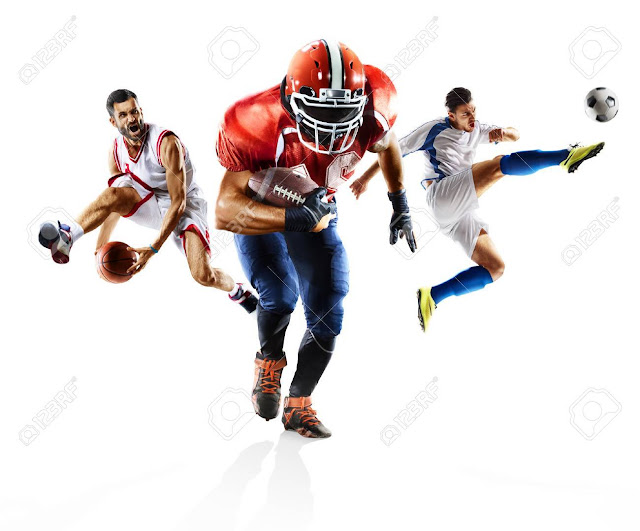INEQUALITY IN SPORTS
INEQUALITY IN SPORTS
By :Oware Ebenezer Date: 17th April, 2020
What is gender?
Gender is a socially constructed definition of women and men. It is not the same as sex (biological characteristics of women and men) and it is not the same as women. Gender is determined by the conception of tasks, functions and roles attributed to women and men in society and in public and private life.
What is inequality?
Is the lack of equality. Normally associated with some differences in size or circumstances and unfair situations in society, namely when some people have more opportunities, money, etc. than other people.
Gender Inequality
Gender inequality refers to unequal treatment or perceptions of individuals based on their gender. It arises from differences in socially constructed gender roles.
Gender inequality in sports has always been a controversial topic.
The rules in sports are the same for all players. However, female athletes are more likely to have lower salaries, fewer sponsors, poorer contracts and little to no media attention.
Football, the President of inequality in sports.
Football is probably the most popular sport and the one where gender inequality is bigger. As indicated in the GSSS global survey, there are 137,021 professional football players worldwide, compared to only 1,287 women who play professionally.
This massive difference in number is a factor to the difference in salaries. PSG player Neymar, for example, was paid 36.5 million euros last season: the same amount as 1,693 female players.
 |
| Neymar Jnr. player of PSG and Brazil men's National Team. |
Most players in lower categories do not receive any income. However, difference in salaries are also present in top leagues and competitions.
After winning the 2015 Women’s World Cup, the players of the United States were paid 1.6 million euros; whereas the men’s French team earned more than 30 million after winning the World Cup in Russia.
These differences in equality are repeated over time within the whole sports industry, though. The women’s league with the highest paying salary is WNBA, the professional women’s basketball league in the United States of America. Regardless, the highest-paid players in the WNBA earn only a fifth of the lowest salary in the NBA, the men’s league.
Fewer Sponsorships, Less visibility
The lack of sponsorships and advertising campaigns also contribute to the increasing gender gap.
Even though multiple brands and companies hire athletes to promote their products, few brands hire female athletes to become faces of their campaigns. Most companies give preference to male sports star
The same is noted in mainstream media: much more time and space is invested in the lives of male stars as well as men’s only competitions than in women’s sports.
In Spain, for instance, only 5% of the press’s coverage is devoted to women athletes, despite the many triumphs of the women’s basketball team and remarkable female medalists in the Olympics Games.
For these reasons, female athletes have less support, are less popular, have less of an audience, and the problem becomes a fish that bites its tail.
Achieving equality in Sports
Governments, institutions, and sport federations are working to promote women in sports: there are women’s tournaments and women’s categories for almost all sport competitions, and just as many competitions as prizes for the winners.

The origin of inequality in sports is found in gender stereotypes and prejudices. Research conducted by Sant Joan de Deu Hospital in Barcelona, indicated that 80% of young girls do not meet the recommended amount physical activity by the World Health Organization (WHO).
Hence, to change the historical injustice of women in sports, we must start by changing today’s young generation of women.
After winning the 2015 Women’s World Cup, the players of the United States were paid 1.6 million euros; whereas the men’s French team earned more than 30 million after winning the World Cup in Russia.
These differences in equality are repeated over time within the whole sports industry, though. The women’s league with the highest paying salary is WNBA, the professional women’s basketball league in the United States of America. Regardless, the highest-paid players in the WNBA earn only a fifth of the lowest salary in the NBA, the men’s league.
Fewer Sponsorships, Less visibility
The lack of sponsorships and advertising campaigns also contribute to the increasing gender gap.
Even though multiple brands and companies hire athletes to promote their products, few brands hire female athletes to become faces of their campaigns. Most companies give preference to male sports star
The same is noted in mainstream media: much more time and space is invested in the lives of male stars as well as men’s only competitions than in women’s sports.
In Spain, for instance, only 5% of the press’s coverage is devoted to women athletes, despite the many triumphs of the women’s basketball team and remarkable female medalists in the Olympics Games.
For these reasons, female athletes have less support, are less popular, have less of an audience, and the problem becomes a fish that bites its tail.
Achieving equality in Sports
Governments, institutions, and sport federations are working to promote women in sports: there are women’s tournaments and women’s categories for almost all sport competitions, and just as many competitions as prizes for the winners.

The origin of inequality in sports is found in gender stereotypes and prejudices. Research conducted by Sant Joan de Deu Hospital in Barcelona, indicated that 80% of young girls do not meet the recommended amount physical activity by the World Health Organization (WHO).
Hence, to change the historical injustice of women in sports, we must start by changing today’s young generation of women.









Comments
Post a Comment
Nana Yaw Oware